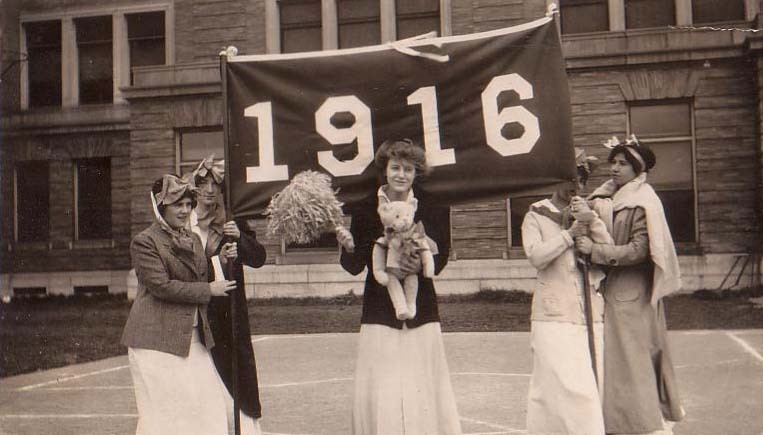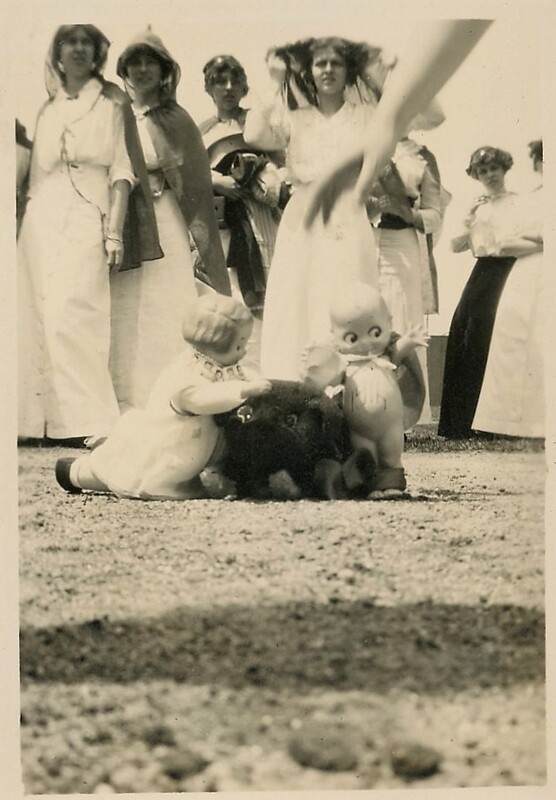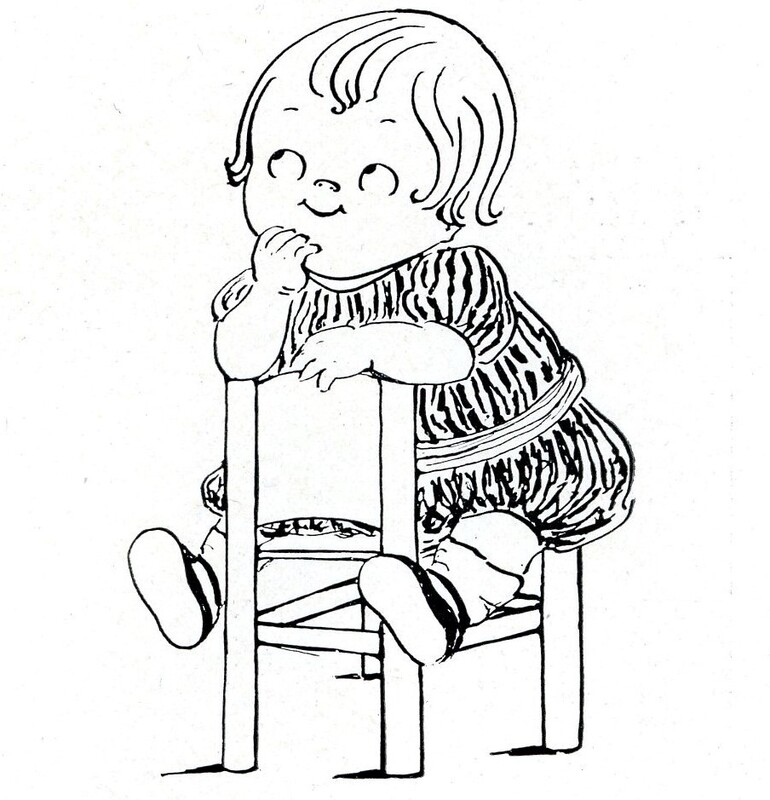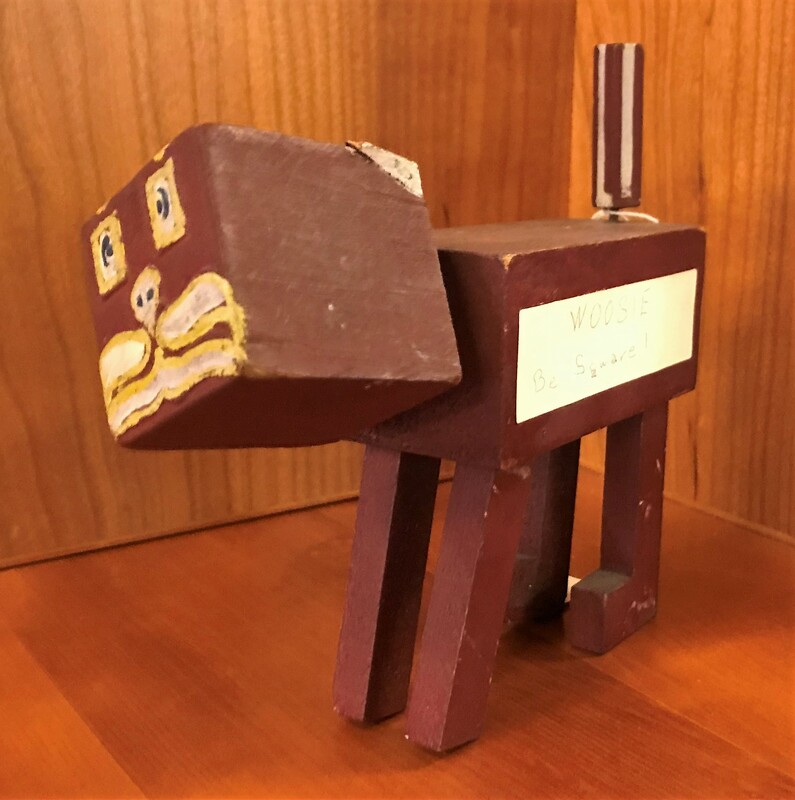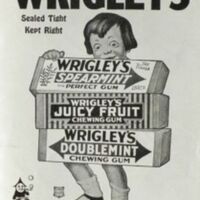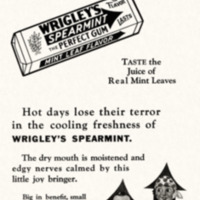1910-1919
Class of 1916: Teddy Bear
When the Class of 1916 reinstated the practice of choosing a Class Mascot, the Teddy Bear was chosen as their representative.
Class of 1917: Campbell Soup Kid
The Class of 1917 was particularly fond of their mascot and demonstrated their devotion in a poem published in the 1917 Microcosm:
O Campbell kid, all praise is due
To you, our mascot ever true.
You’ve helped us all our victories gain,
You’ve been our sunshine after rain,
And when sorrows pressed the while
We found our comfort in your smile.
You are so very wondrous wise
You’ve told us volumes with those eyes.
And now before we say farewell,
To everything we love so well,
Where’er we go, where’er we be,
Our song of praise will be for thee—
O Campbell kiddie—Here’s to you!
Class of 1918: Woosie
Woosie was chosen as the Class of 1918 mascot five years after the character was introduced to the world as Woozy in L. Frank Baum’s The Patchwork Girl of Oz (1913).
Although spelled differently, the Class of 1918’s Woosie identically resembled Baum’s character—a wooden block dog with a cropped tail.
While Baum’s Woozy lives in the Munchkin country in Oz, surviving chiefly on a diet of honey bees, Simmons’ Woosie still lives in Boston, keeping the Simmons University archivists company.
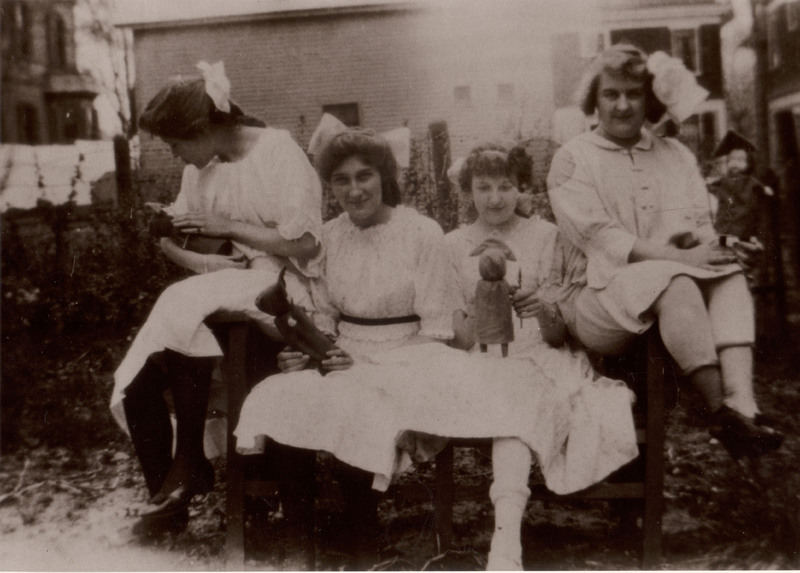
Helen Fowler ('19), Mary Russel ('19), Evelyn Wallis ('19), and Gertrude Neff ('19) with Spearmint Doll, c. 1919.
Class of 1919: Spearmint Kid
The Spearmint Kid was chosen to represent the Class of 1919.
A widely recognized figure in the United States by the end of the 1910s, the Spearmint Kid was first introduced to the world in 1915 as the Wrigley Company’s mascot for their spearmint gum. The Spearmint Kid represented the company through a series of nation-wide ad campaigns that continued throughout the decade, the 1920s, and into the 30s.
